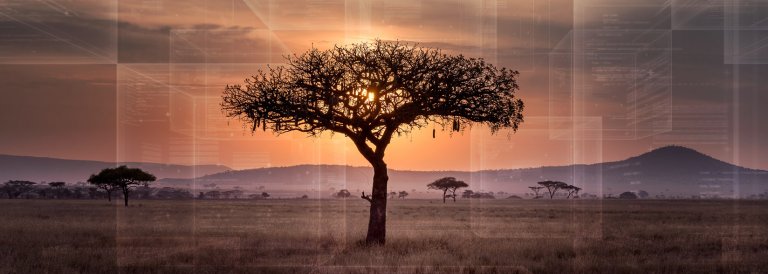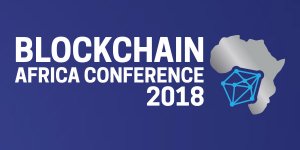 Blockchain Is Transforming the Digital Landscape of Africa
Blockchain Is Transforming the Digital Landscape of Africa Blockchain Is Transforming the Digital Landscape of Africa

Photo by Chen Hu on Unsplash
The fourth annual Blockchain Africa Conference that concluded recently saw some of the brightest crypto minds from across the globe come together to discuss widespread blockchain adoption within the 1.2 billion-strong continent.

As things currently stand, a majority of African nations still suffer from everyday armed conflicts, corruption, and poverty.
Even though Africa does not get a lot of attention from the global digital market, local tech startups have taken up blockchain technology to counter many of the economic and political issues that exist within the continent today.
Kenya is a shining example of this. In an unprecedented move, Uhuru Kenyatta, the nation’s president, launched a blockchain and artificial intelligence (AI) task force for the purposes of deploying crypto technologies within the countries existing economic framework.
The eleven-member team has been mandated with the task of creating a 15-year roadmap that will help Kenya reduce political corruption and red-tapism which unfortunately runs rampant within the establishment today.
Other use cases
Similar to what is happening in Kenya, the Ghana government has also beseeched the help of local startups to develop blockchain systems that can enable Ghanaians to receive some form of land ownership paperwork.

Ghana is an interesting case since 80% of the nations land is owned communally. Thus with the introduction of the blockchain, the government is looking to provide landowners with documents that will dispel problems of cartel corruption.
In recent times the local real-estate market has been infested with multiple title deeds for a single piece of land, thereby propagating cases of land scams.
Additionally, in one of the more novel use cases of this technology, Sierra Leone recently implemented a blockchain platform to tally votes during their recent parliamentary elections.
Agora, a Swiss tech company, was tasked with the creation of a crypto service which could facilitate a fair and transparent election— something that is not commonplace in Sierra Leone.
Africa as a Blockchain hub
Many investors are viewing countries like South Africa and Nairobi as potential blockchain hubs since they possess crypto friendly laws that can help foster digital innovation.

For example, Nairobi based BitHub Africa is looking to fund local startups in an attempt to accelerate blockchain adoption.
The company provides a wide array of consultancy services across Africa and the Middle East to crypto-enthusiasts looking to establish micro-lending setups.
Similarly, in South Africa, Cape Town-based Blockchain Academy is engaged in training the local population about the advantages of cryptocurrencies and how they can be used within business setups not only to maximize profits but also to streamline everyday accounting processes.
Looking Ahead
While blockchain technology continues to gather momentum within Africa, there still exist some tangible hurdles that need to be looked into carefully.

For example, electricity consumption can pose a big problem within the continent if crypto mining becomes more widespread.
However, with large-scale solar farms in Morocco, South Africa, Uganda reaching completion, this energy problem can be mitigated by using resource-sharing models that can not only help local governments but also the African crypto-mining community at large.
With blockchain providing third-world nations with the power to transform their economies from the inside out, it will be extremely interesting to see how the future of Africa plays out from here on out.



 Farside Investors
Farside Investors 


 CoinGlass
CoinGlass 



























































































